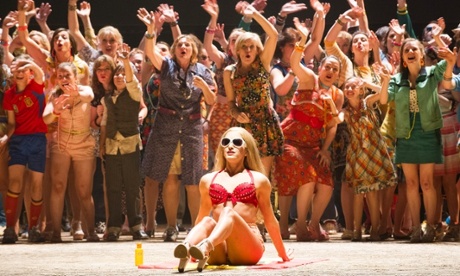Your editorial (5 July) asserts that “for the rich, events like the Proms provide status experiences that will convey bragging rights with fellow have-yachts”. It must please be noted that once again this summer there will be 100,000 seated tickets available for under £15, alongside 70,000 Promming (standing) tickets that can be purchased daily for £6, as the Proms continues its commitment to being one of the world’s most democratic festivals.
On the question of “What is classical music for?” you make some good essential points: that classical music is and never should be reduced to background muzak; it should not live in the past; it should not become simply a commodity. It should make the listener think, understand humanity, and feel more alive.
However, I don’t recognise the suggestion that the BBC Proms is “easy listening” nor that Radio 3 is a “complacent titan”. Radio 3 and the BBC Proms are among the most significant commissioners of new classical music anywhere in the world. Much of the music we play is not heard anywhere else, the BBC Proms indeed opens with a world premiere and new music features right through to the last night. On Radio 3 we play complete works, reflecting live music up and down the country, supporting talent making new work and working hard to redraw the boundaries of the canon, recording historical works by female and BAME composers that have not been widely heard before. So it’s curious the writer dismisses Radio 3, and the BBC Proms, orchestras and choirs for their work pushing boundaries in classical music – the BBC’s support in this area should never be taken for granted.
Alan Davey
Controller, BBC Radio 3 and BBC Classical Music
• Your rather odd editorial on classical music needs at the very least some qualifying. True, a certain small section of the classical repertoire has been commodified as muzak and, true, money is made by some of those who conspire in this commodification. True, too, that a small number of events – though not the Proms, save perhaps for the anomaly of the Last Night – are surrounded by the whiff of status-seeking. But most classical music-making events in this country function on a frayed shoestring, and that they function at all is down to a host of highly skilled, underpaid (sometimes unpaid) performers, composers and promoters working for small-scale operations which gain little media attention, charge minimal entrance prices, are attended by diverse audiences, and usually struggle to make ends meet. The cultural value of this activity is inestimable. Then there is the pop music industry.
Stephen Pettitt
London
• An interest in classical music, whether the works of “dead white men” or the “musically new”, is fostered through exposure and participation from an early age. My professional organisation, the Incorporated Society of Musicians, does sterling work promoting the widest engagement in music, but the acute lack of funding, political apathy and a peculiarly English idea that classical music is inherently elite (quite the opposite to contemporary art) makes it an uphill struggle. Music education has also been squeezed out of the curriculum in state schools, and Newham council is seeking to cancel its Every Child a Musician programme.
The Proms has a venerable tradition of commissioning new works, but I imagine the BBC has scant money for this, given it now has to fund the licence fee for over-75s. Could we see a little more exposure in the Guardian? Rare is the article on the “musically new”; how about coverage equal to other musical genres?
Sue Clark
Piano teacher, London
• I love you, but having carpet-bombed your readers with stuff about deceased pop singers and Glastonbury, you have forfeited the right to comment on one of the greatest achievements of western culture – classical music. This saddens me. Your treatment of classical music is like filling Saturday’s Review section with reviews of books by Jilly Cooper and Jeffrey Archer.
There are undoubtedly issues to be discussed within the world of classical music but an inaccurate, broadbrush fling of words once a year will not hack it. You are part of the problem you have diagnosed. As you say, Beethoven does indeed “deserve better”.
Paul Michell
Bristol
• Join the debate – email guardian.letters@theguardian.com
• Read more Guardian letters – click here to visit gu.com/letters
• Do you have a photo you’d like to share with Guardian readers? Click here to upload it and we’ll publish the best submissions in the letters spread of our print edition










